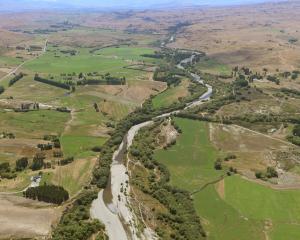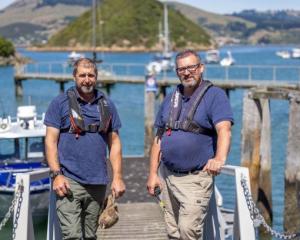Fish and Game Otago is questioning how it can do its statutory duty of protecting trout and salmon if the Otago Regional Council fails to notify it of consent applications involving waterways.
The Department of Conservation and Kai Tahu Ki Otago (KTKO) are similarly concerned about their loss of affected party status during regional council consideration of consents that are not publicly notified.
In an effort to reduce the time it took to process consents around waterways and the cost of doing so, the regional council had changed its ''blanket'' approach of automatically notifying Fish and Game, Doc and KTKO as affected parties, council resource management director Selva Selvarajah said.
Instead it only notified those parties if council staff judged the works involving waterways or river beds to have adverse effects on trout, salmon, protected flora or fauna or cultural values.
Fish and Game chief executive Niall Watson said Fish and Game was the statutory manager of sports fish living in the region's waterways. ''It's unusual if our interests are not affected.''
Being listed as an affected party meant Fish and Game was aware of applications and could engage with applicants about appropriate conditions to protect sports fish or game birds, he said.
While the regional council believed it had the expertise to assess adverse effects on the fish, it was Fish and Game's responsibility to do so.
''From a fisheries point of view, it's about cumulative effects of a whole pile of minor consents. We argue that we need to be involved to protect the council's interests.''
The council had identified it was crucial for it to be involved in the Resource Management Act process, Mr Watson said.
''To fulfil our function we need to be closely involved where fish and game resources or even ecosystems are involved.''
The move by the regional council was contrary to resource management being collaborative and engaging with the community, he said.
Fish and Game had met the council to discuss its concerns and had written to it stating its position.
KTKO manager Chris Rosenbrock said KTKO shared similar concerns to Fish and Game.
It was disappointed to find out about the change ''when the mail went quiet''.
''We used to receive 15 to 20 regional council consents a fortnight; now we'd get one or two.''
KTKO planned to initiate discussions with the council to air its concerns and find out who was assessing cultural values in their absence.
Doc Otago acting conservator Ken Stewart said he did not believe Doc had been advised by the council that it was no longer being treated as an affected party unless the council deemed it appropriate.
''If that is the case, we would have some concerns and would want to have a conversation with them.''
Dr Selvarajah said in an effort to increase efficiency the council had started to apply the RMA affected parties test, which was based on adverse effects on the party and the measures taken to avoid, remedy or mitigate them.
If the council judged there to be no adverse effects or if the effects could be dealt with by simple conditions such as not doing the work during spawning season, it did not notify Fish and Game, he said.












